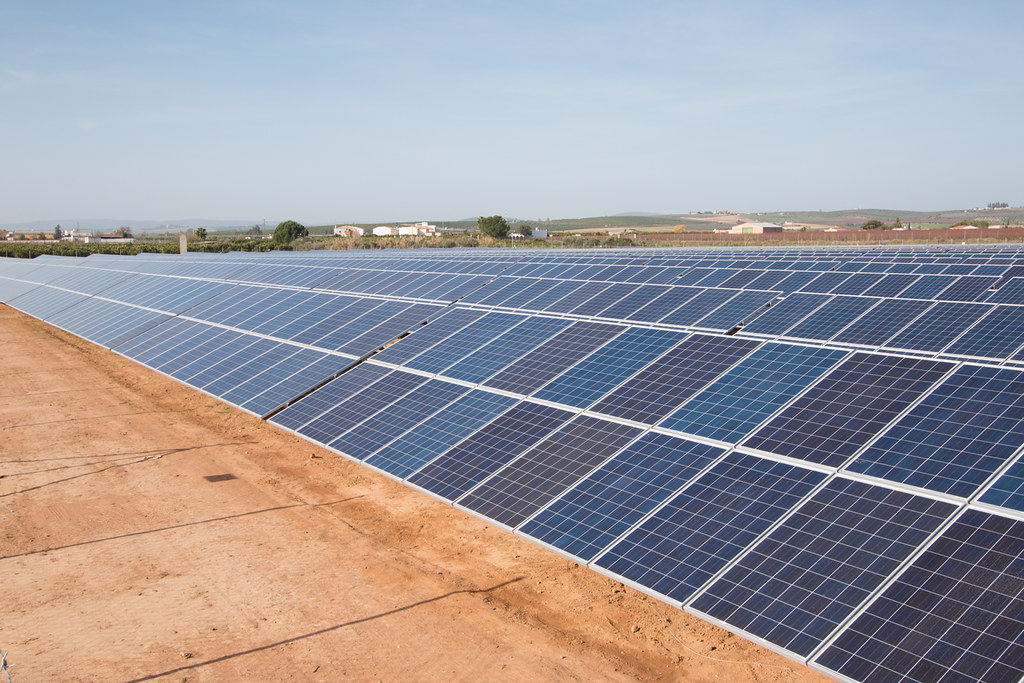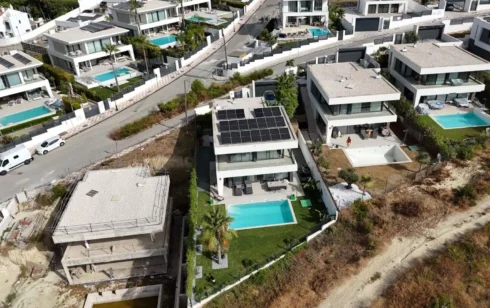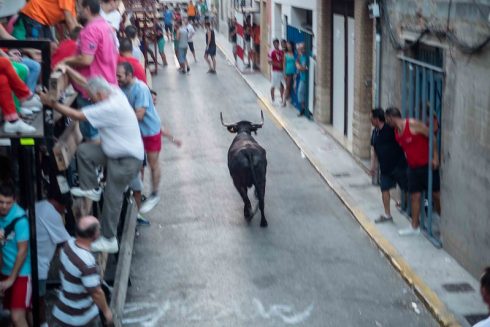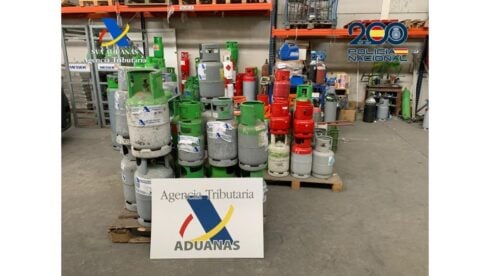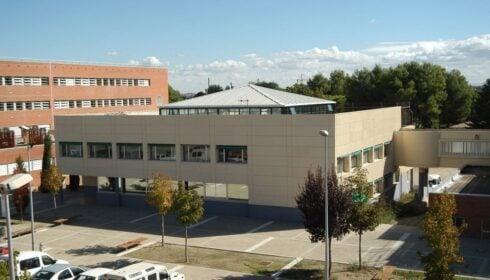SPANISH cinema is at its best when portraying rural life and the award-winning 2022 Alcarràs is no exception.
It tells the tale of a struggling farming family divided when their century-old orchard is mercilessly trampled ‘by progress’ in the shape of a solar farm.
A winner at the box office, the award-winning film has struck a chord with audiences already witnessing the colonisation of swathes of rural land by international renewable energy companies capitalising on Spain’s unique combination of sun and wind.
Lightsource (owned by BP) has made Spain its largest renewables market in Europe and is joining others in a race that kicked off when the current Socialist government swept aside the notorious sun tax introduced by the PP government a decade ago.
In Andalucia alone, 1,2m hectares are being ring-fenced for clean energy purposes while 10% of Teruel province could be covered by renewable energy installations by 2030 when the country’s National Integrated Energy and Climate Plan (PNIEC) hopes to hit a target of 60 gigawatts of clean power, reaching 74% of its energy requirements.
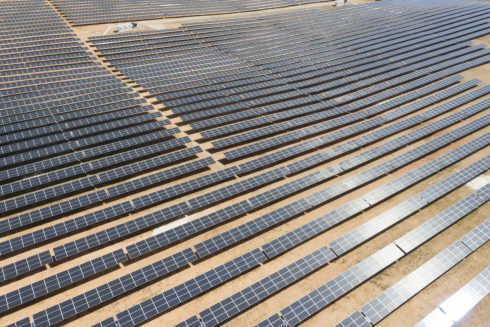
Such is the excitement, it could make the area the ‘Saudi Arabia of Europe’ claims Spanish economist Jose Carlos Diez.
And, given Spain’s vast areas of depopulated countryside, it would seem there’s room for everyone to join the party.
But like any progress, the renewable energy boom has its detractors.
When it comes to the peninsula being likened to somewhere hot and sandy, Javier Oquendo, spokesman for the Platform in Defence of Teruel’s Landscape has a different country in mind.
“The big corporations are putting the infrastructure here so they can consume the energy elsewhere,” he tells the Olive Press this week.
“What we want is a kilometre zero policy. Local use of electricity. But, instead, it’s like, throw us a bone, and we’ll be happy.”
Oquendo stresses he is not against renewables. The Teruel platform and more than 200 others like it have grouped under the umbrella association ALIENTE (Energy and Territory Alliance) with the slogan: “Renewables yes, but not like this.”
Their first demonstration last year saw 15,000 protesters in Madrid demanding a different, scaled-down model –one that cuts out big energy firms with big export projects.
Gorka Ederra, spokesman for Navarra’s Salvamos El Perdon platform explains: “They plan to cover 40% of the Adios region with infrastructure. These big companies make out they’re coming to save rural Spain. If they leave us alone, that will do the trick.”
The platforms call it ‘the industrialisation of the countryside’ and for those in the tourism sector the visual impact could be very damaging.
“They plan to fill the field in front of my hotel with solar panels,” explains Diego Pilaquinga who runs the Mas de Cebrian hotel in the Sierra Gudar-Javalambre.
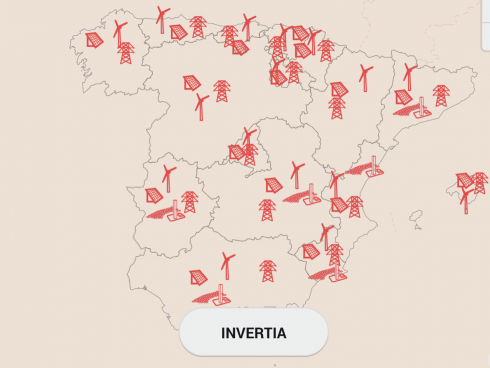
It’s certainly not for the faint-hearted with Forestalia’s Maestrazgo solar project set to cover 137 hectares with solar panels. “People come here to see nature, not to look out on a field of black panels,” he adds.
Some of the area is part of the European Natura 2000 network of breeding sites for rare and threatened species and, though there is legislation protecting Natural Parks and Special Protection Areas (SPAs), when it comes to the Natura 2000 network, the government’s line is merely indicative and can be overridden.
According to Daniel Lopez from green group Ecologistas en Accion ‘these are frequently areas of great beauty but the problem is the law doesn’t actually guarantee their protection’.
“And most of the renewable companies are here to make money,” he adds.
Forestalia, one of the biggest players in the Teruel region, has a background in the meat industry and has been accused of speculation and being given a blank cheque by the government to set up where it wants.
“If you say you don’t want their project, their response is that it’s not the public’s opinion that counts. It’s the legality,” says Oquendo, who flags up a viral video in which a Forestalia advisor was filmed telling a protester ‘if the villages oppose us, Europe will tell you where you can put your opinions’.
Forestalia has denied the blank cheque claims insisting it is ‘impossible’ when there is a public bidding process to win the project. “The people on these platforms play the victim,” insists a spokesman. “They are scared of change. In any case, you can’t save your village if you don’t first save the world.”
Just like the movie, Alcarras, the issue is proving divisive.
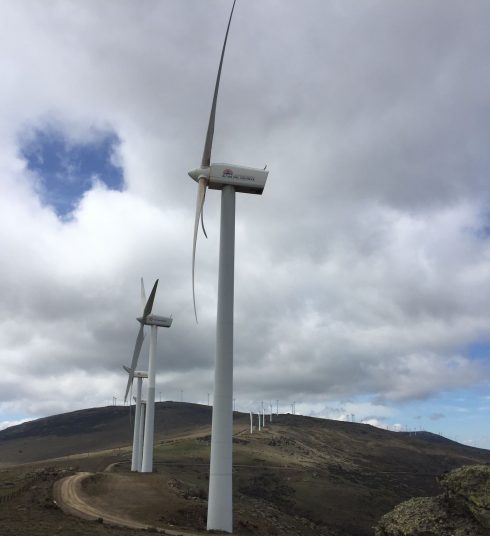
According to Oquendo, entire communities in Teruel are at loggerheads, with vandalism surfacing in April and many threats being made.
Causing much of the anger is the fact that land can be expropriated if at least 80% of local landowners are in favour of installing a project.
“There are neighbours who have literally stopped speaking,” he says.
The majority of ALIENTE’s groups are demanding multiple small projects instead of just a few macro ones, with priority for local consumption.
“Unlike with coal, the locals can all participate in this,” claims Ederra from the Salvamos el Perdon platform.
But Jose Donoso, head of the Spanish solar association UNEF, dismisses this idea as ‘suicide’. He points out that the ecological transition is not just about ‘decorating the countryside’.
“We need €25 billion in investment to reach the 2030 National Integrated Energy and Climate Plan (PNIEC) target. Small companies simply don’t have that kind of money,” he states.
Donoso adds that those who maintain we can respond to climate change with small companies alone are neo-negationists.
“These people may not deny climate change but that makes them more dangerous because they oppose any policy to address it,” he says. “They’re the biggest barrier to the ecological transition in the country right now.”
As for Alcarras, Donoso points out that the actual Catalan village of Alcarràs, where the film is set, actually does have a solar farm installed on land previously used as a deposit for waste from an industrial pig farm.
There was no orchard destroyed and the ‘landowner is very happy’.
READ MORE:
- Oil giant Repsol is constructing Spain’s first advanced biofuel plant in Murcia region
- Spain and Portugal experiencing driest spells in over a millennium
- STAY OUT!: Ibiza may limit cars and tourists entering the islands
Click here to read more Spain News from The Olive Press.

